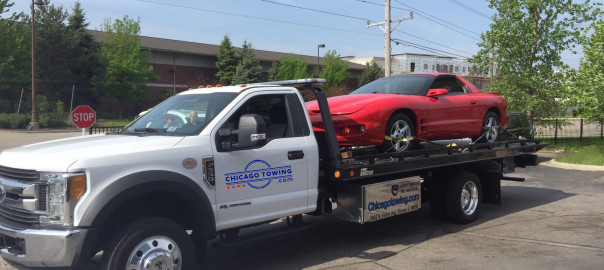In this blog entry, the towing and vehicle recovery experts at Towing Chicago will detail the role that tongue weight plays in the technically complex – and essential – service of heavy duty (and medium duty) towing services.What is Tongue Weight
In a nutshell, tongue weight is the term that describes the downward force that a towing a trailer applies at the coupling area between the vehicle and the trailer that it’s hooked.
The vehicle that needs to be towed
At the highest, vehicle tong weight needs to make up 15% – or at lowest, 10% – of the gross trailer weight. Tongue weight allows drivers to control trailers when they’re hitched up, and makes driving much safer and more steady.
Measuring tongue weight
You can measure the tongue weight of a trailer or a vehicle using a few methods. In order to calculate a trailer’s tongue weight, utilize a tongue weight scale, a vehicle scale or even a bathroom scale.
In order to measure tongue weight with a tongue weight scale, which is a special device, a small scale that’s made to calculate a trailer’s tongue weight. Simply place the scale under the trailer jack and read what it says. If the jack does not fit properly, a pipe can be placed vertically between the scale and its coupler in order to obtain a high quality reading.
In order to measure tongue weight with a bathroom scale, first make sure that the weight of the vehicle is under 300 pounds to begin with. Then, place the tongue or the jack directly on the bathroom scale. In order to protect the bathroom scale, you might consider putting down a piece of wood under it. First, if the weight is greater than 300 pounds, you might consider using boards and pipes to test it. Take a reading off the bathroom scale and then triple this amount to find your tongue weight.
Frequently Asked Questions about Tongue Weight
Why is tongue weight important when you’re towing?
Tongue weight is an essential calculation for anyone looking to tow a vehicle. Improper reading of tongue weight can cause danger to drivers or anyone else sharing the road. When tongue weight is 10% less of the total weight of a vehicle. the trailer might sway back and forth during driving. If the tongue weight is too heavy, higher than 15%, the towing vehicle might not respond to towing especially during turning or braking.
Keep in mind that loading the trailer in a proper fashion by placing cargo behind or in front of the trailers axle seriously impacts the level of tongue weight.
How do I measure tongue weight on a trailer?
Tongue weight on a trailer can be measured using tongue weight scales, vehicle scales or even a bathroom scale. Measure the tongue weight by putting the trailer’s tongue on the scale using the trailer jack.
What is tongue load?
Tongue load is a trailer’s weight at the level of its tongue or its coupling point. Usually tongue load or tongue weight is between 10 and 15% of the total weight of the trailer.
How do I measure the tongue weight of an RV?
If you’re looking to weigh the tongue weight of an RV, put the tongue of the trailer on a tongue weight scale. You can also weigh this tongue weight using a special vehicle scale and comparing it to the weight of the vehicle Once the trailer is attached to it. RVs are usually very heavy, so they would require a heavy duty scale in order to handle this level of weight.
Can excessive weight cause trailers to sway?
Yes, too much weight can cause trailers to sway and also lower the level of control that the driver has over the vehicle
What happens if tongue weight is way too heavy?
If tongue weight is too heavy, it can cause trailers to be very hard to operate, very easy to lose control, and make it very difficult to break or make turns in a safe fashion.

